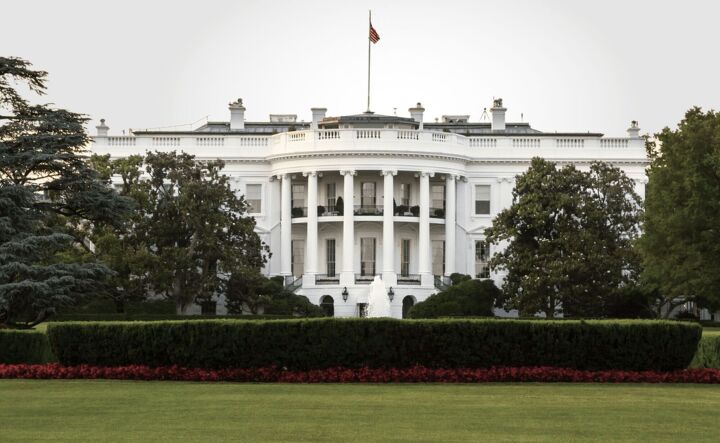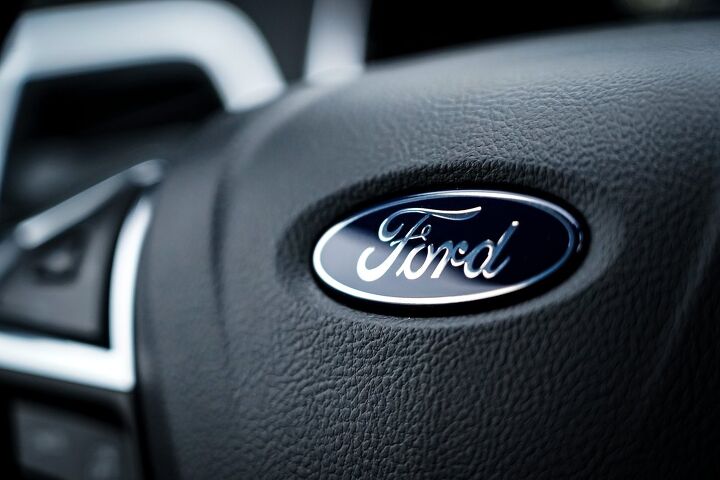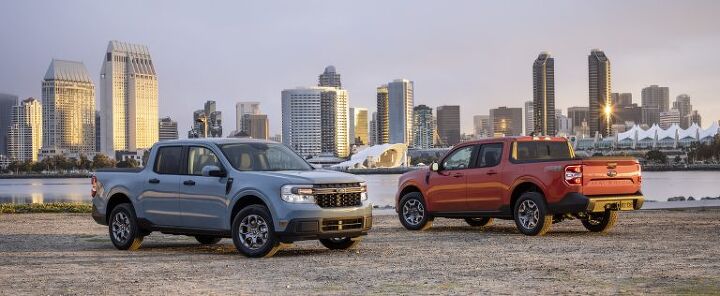#AutomotiveIndustry
Question of the Day: What Was Your First Automotive Job?
Obviously, not everyone reading this site has worked in the automotive industry. That said, common sense suggests that at least some percentage of car enthusiasts reading an automotive-focused Web site have worked in the industry in one way or another.
Anecdotal evidence from the comments I read also shows that some of you have turned a wrench or sold whitewalls.
White House Vows to Investigate Security Risks Posed by Foreign-Connected Vehicle Tech
On Thursday, the Biden administration announced plans to investigate the potential national security risks being confronted by American automakers and any threats posed by connected vehicle technologies controlled by foreign adversaries — including China.
Union Bargaining Begins in Detroit
The United Auto Workers (UAW) is commencing contract negotiations with General Motors, Stellantis, and the Ford Motor Company this week. Members of the union’s executive board, along with UAW President Shawn Fain, appeared outside Stellantis' Sterling Heights Assembly Plant early Wednesday morning to draw attention to the talks.
The plan is to see each manufacturer as a preamble to the formal negotiations, which technically begin on Friday. But the union is also desperate to show itself in a better light after expansive corruption scandals implicated some of its now-ousted top brass. For most people living in North America, wages haven’t kept pace with the cost of living and inflationary pressures are exacerbating the issue. If there was ever a time to get the American public back on the side of unions, it’s now.
Study: Auto Execs Are Becoming Less Optimistic About EV Adoption
Automotive executives are reportedly scaling back their expectations for EV adoption, according to an annual survey conducted by KPMG International. Last year, professionals working at the top of the industry reported that they believed (on average) that over half of all new vehicles sold in the United States by 2030 would be battery-electric. But their faith in electrification appears to be evaporating, with most respondents suggesting that particular goal is no longer achievable.
Senate Asks Automakers About Forced Labor in China
The Senate Finance Committee has formally requested that eight major automakers provide detailed information about their supply chains in order to determine whether or not they benefit from slave labor. In a letter sent Thursday, the group referenced a report from Sheffield Hallam University claiming that the auto industry is “unwittingly” utilizing metals, batteries, wiring, wheels, and other components that were coming from questionable sources – namely ethnic slaves living in Western China.
NHTSA Updating Guidance for Connected Cars, Cybersecurity
Despite having a formal mission objective to “save lives, prevent injuries, and reduce vehicle-related crashes,” the National Highway Traffic Safety Administration (NHTSA) has been shifting some of its focus toward automotive connectivity over the last few years. In fact, the agency has recently updated its guidance for vehicle cybersecurity – which was originally penned in 2016.
While this raises questions about the true role of the NHTSA, most government regulators have been flexing their muscles as new automotive technologies lacking clearly defined directives become increasingly commonplace. Besides, the safety agency has at least managed to tie its cybersecurity guidance (which is currently voluntary) to hacking concerns that could affect how the affected car behaves and how that might translate into physical harm for those on the road.
Automakers Still Dissatisfied, Lobbying Continues
Automakers are growing concerned about the future now that it looks like people have finally reached their breaking point in regard to elevated vehicle pricing. While the industry is citing inflation in the general sense, the truth of the matter is that companies’ own inability to manufacture vehicles and parts at anything approaching a normal pace resulted in price increases that vastly outpaced the devaluation of your preferred currency. This was made far worse by dealerships affixing their own markups to just about every model that compares favorably to walking.
Report: Ford Cutting 8,000 Jobs as It Repositions for EVs
A report, citing unnamed sources, has claimed Ford is planning to eliminate up to 8,000 jobs in North America to free up capital for its ongoing transition to all-electric vehicles. Cuts are expected to begin later this summer and will allegedly target salaried employees working within the “Ford Blue” unit the automaker created to specialize in gasoline-driven vehicles.
This follows earlier statements made by CEO Jim Farley, who warned in February that the company had too many people on its payroll and specifically lacked the expertise required to reposition itself as an automaker specializing in EVs. Though this isn’t really unique to the Blue Oval, as the entire industry knew that manufacturing electric cars would require far less manpower.
Report: Some Automakers Abandoning AM Radio
An acquaintance of mine recently said he would never purchase an all-electric vehicle and offered up a reason I never heard before. “They don’t come with AM radio,” he said.
While this surprised me, shifting technological preferences have indeed started to change how automobiles and broadcasters interact. As an example, a gaggle of Mazda owners found their vehicles stuck tuned to National Public Radio this February after a local station transmitted an FM data packet that effectively froze the cars’ infotainment system amid the swap to next-generation broadband services. That transition has already caused some interesting problems for the industry and electromagnetic interference has likewise become the default explanation for automakers limiting your frequency band choice in certain vehicles. But it doesn’t explain why some companies are ditching AM radio outright. In fact, a little research has shown a lot of the explanations given by manufacturers leave a lot to be desired.
TTAC's Next Podcast: Chatting Cars With Robby DeGraff
The TTAC podcast is back, and we were aggressively Midwest this time around.
EVs Are Becoming More Expensive, Not Less
A few years ago, the industry narrative was that all-electric vehicles would reach financial parity with their combustion-driven counterparts in 2025. The assumption was that this would gradually occur by way of ramping up battery production and leveraging economies of scale. However, reality had a different take, as the world is now confronting record-setting prices across the board. Manufacturer and dealer hikes have resulted in the average invoice of EVs rising to $54,000 — roughly 10 grand higher than the typical transaction price of gasoline-powered vehicles, according to J.D. Power.
With economic pressures spiking the value of all automobiles, hardly anything is leaving the lot for less than it could have been had for in 2020. But the increases seen on all-electric models are actually outpacing the models we’ve been told they’re supposed to replace.
Report: 50 Million U.S. Cars Still Subject to Recalls
The latest data from Carfax has indicated that roughly 50 million U.S. vehicles presumed to still be in operation still have outstanding recalls that have yet to be addressed. Though the good news is that this represents a 6 percent decline from 2021 and a meaningful 19 percent drop against 2017.
Still, the metrics may not be wholly down to better communication on the part of the manufacturer and people taking recall notices more seriously. Between 2013 and 2015, the average number of U.S. vehicles and equipment subjected to recalls per year went from 26.3 million to 83.6 million. While the annual averages have come back down since, recalls have remained substantially higher than in decades past.
Gas War: Automakers Continue Begging Government for EV Incentives
On Monday, General Motors, Ford, Stellantis, and Toyota Motor North America reportedly asked the United States Congress to lift the existing cap on the $7,500 federal tax credit for electric vehicles. Though automakers petitioning the government for free money is hardly new business.
How Shanghai Lockdowns Are Changing the Auto Industry
While the semiconductor shortage was long considered the excuse par excellence for why the automotive sector couldn’t produce enough vehicles during the pandemic, some manufacturers have begun pivoting to blaming supply chains that have been stymied by Chinese lockdowns. Toyota is probably the best-known example. But the matter is hardly limited to a singular automaker and market analysts have already been sounding the alarm bell that strict COVID-19 restrictions in Asia will effectively guarantee prolonged industrial hardship around the globe.
Back in April, Shenzhen was emerging from a month-long lockdown. However, the resulting downtime severely diminished the tech hub’s output which exacerbated global component shortages. While Chinese state-run media claimed regional factories maintained full-scale production during the period, the reality was quite a bit different. Meanwhile, Shanghai has remained under harsh restrictions since March and more look to be on the horizon. As an important industrial center and the world’s busiest port by far, the situation has created an intense backlog of container ships that are presumed to create some of the sustained problems that we’re about to explore.
Chinese Lockdowns Force Toyota to Cut Production Again
The automotive industry has basically resigned itself to running with lessened production for the foreseeable future. A significant number of automakers have suggested that it might be more lucrative to scale back output, reduce overhead, and focus on achieving broader margins per car during this prolonged period of economic and logistical duress. However, Toyota started the year saying it would do its utmost to raise production output as a way to make up for losses incurred during the pandemic. The company even said it anticipated things to gradually normalize through the spring.
Unfortunately, things have not gone according to plan. By March, the Japanese automaker had lowered its output goal for the fiscal year by 500,000 global units. Another 20 percent was lopped off for the month of April and leadership began expressing concerns that those preexisting goals might be totally untenable. While there were moments with the target actually rose, Toyota has repeatedly been forced to walk those claims back as the realities of the market dashed its dreams. Now, the company is once again cutting planned output for the month of June over supply chain issues with China.






























Recent Comments